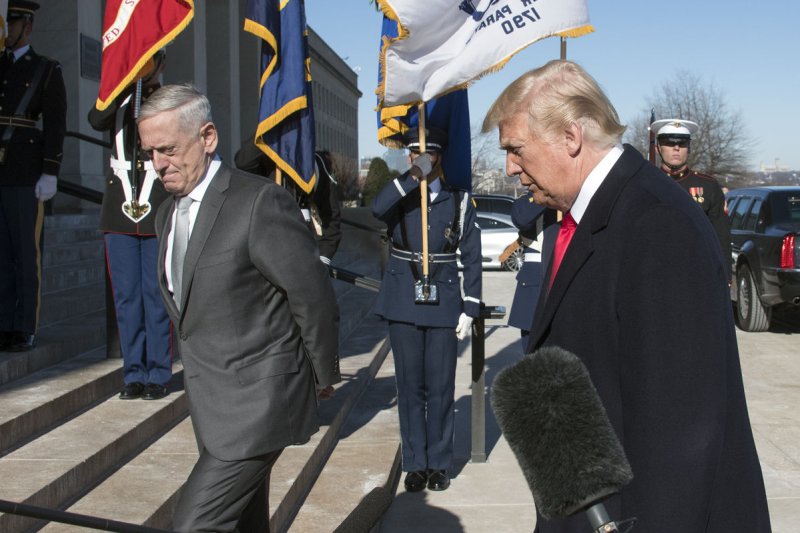United States President Donald J. Trump, accompanied by US Secretary of Defense Jim Mattis, left, walks up the steps into the Pentagon after making a statement prior to going into meetings at the Pentagon in Washington, DC on Thursday. Mattis on Friday unveiled a new defense strategy released by the Pentagon. Photo by Ron Sachs/UPI |
License Photo
Jan. 19 (UPI) -- A new defense strategy released by the Pentagon on Friday takes aim at Russia and China, directing the U.S. military to turn its attention to those nations instead of focusing primarily on Islamist militants and "rogue" countries.
The new National Defense Strategy, unveiled by Defense Secretary Jim Mattis, contains a much different blueprint than the 2014 strategy, released prior to Russia interfering with the 2016 presidential election and joining the civil war in Syria.
"This strategy is fit for our time - providing the American people the military required to protect our way of life, stand with our allies and live up to our responsibility to pass intact to the next generation those freedoms we enjoy today," Mattis said in a news statement. "This required tough choices - and we made them ... based upon a fundamental precept: namely, that America can afford survival."
The document is classified, but an 11-page summary is available that outlines areas of focus for the U.S. going forward, which includes strengthening military alliances from the Middle East to Asia and building a larger, more agile military.
While previewing the new strategy Thursday, Elbridge Colby, deputy assistant defense secretary for strategy and force development, said Russia and China "have decided to go to school on the American way of war and the technologies that are associated with it, and have made a lot of headway."
Colby said the new focus is "not a strategy of confrontation," but will address "very tough major power potential challenges."















